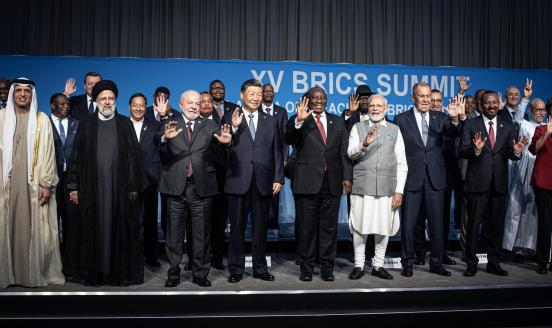Reform needed before Chinese currency joins top league
The internationalisation of the Chinese currency is progressing but substantial reform is needed before it can reach the same standing as the euro o
China is often at the heart of debates about the world economy but the discussion essentially revolves around two topics. One is the valuation and the flexibility of the exchange rate. The other is external imbalances, reserves and the degree to which they can destabilise the world economy. Both largely ignore the place of China in the international monetary system, and the role that its currency can play in it. Following a report on the latter, the Bruegel think-tank has focused on the ongoing evolution of the renminbi and its current path towards internationalisation. Its findings suggest that the Chinese currency could challenge pound sterling or the Swiss franc in the near future, but increasing its prominence to challenge that of the euro or the dollar is a longer-term endeavour that will require substantial reforms.
Most of the literature on the matter argues that the RMB's potential as an international currency is limited so long as China maintains a largely closed financial account, its exchange rate remains managed, and its financial sector remains state controlled and closed to foreign participation. This argument is largely based on the so-called 'impossible trinity' – the theory that it is not possible to have a fixed exchange rate, free capital movement, and an independent monetary policy all at the same time – but fails to take into account the cracks that China's policy can open in the traditional Mundell-Fleming stylised fact.
An analysis of the processes through which the RMB is starting its internationalisation shows that its path largely allows it to circumvent capital account restrictions. And, while the net creditor position of China could substantially slow the internationalisation process, there is an active strategy to encourage international investments by corporates which ought to gradually rebalance China's net investment position. The creation of the RMB offshore market is an important step in this development and allows the insulation of the domestic financial system, thereby circumventing financial account restrictions. Second, the managed nature of the exchange rate does not really preclude a degree of internationalisation and, in any case, currency flexibility will follow relaxation of the capital account rather than the other way around.
Finally, the argument about financial sector liberalisation is often used in a self-serving and misleading way. China has decided to largely outsource this function to the offshore financial system in order to allow more time for its own fragile domestic financial system to adapt. In this context, one should see the offshore RMB market – which is primarily located in Hong Kong but likely to extend to other financial centres such as Singapore or even London – as a proxy Chinese financial sector and as a levee to prevent uncontrolled capital flows in mainland China, which have proven to be the source of financial crises in other emerging economies.
All in all, the usual obstacles brought forward by the economic literature on the matter are manageable. But there are challenges for the renminbi before it can obtain the status of the euro and the dollar. The first one is regional in nature because it is unclear yet whether China would like to use the regional role of the RMB as a stepping-stone towards its establishment as an international currency, or whether it can afford to leapfrog this step. The experience of the euro area provides both a model and a test case.
A version of this column was also published by Public Service Europe.
The Working Paper The internationalisation path of the renminbi is available here



